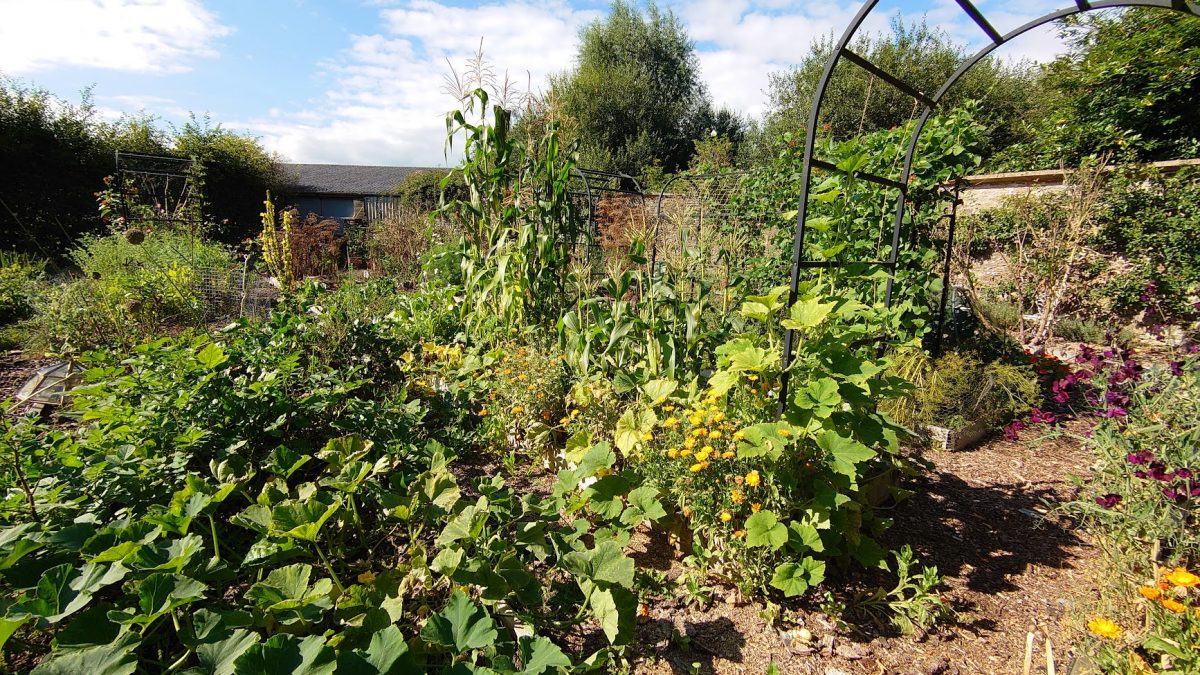Workshops

Sally runs several workshops at Empire Farm. The cost of the workshop is £95
An introduction to growing fruit and vegetables
Sally has long been interested in climate change. In recent years she has been looking at how we can make our gardens more resilient to the changes and this resulted in The Climate Change Garden which she wrote with Kim Stoddart.
This intensive full day course looks at growing organic fruit and vegetables, while thinking about the challenges ahead from climate change. Climate change resilience starts with the soil so we start with looking at soil, mulching and composting, and creating hugelkultur beds for added resilience. Traditional crop rotations may not always be the best approach so Sally looks at alternative approaches, such as polyculture and continuous cropping. We will also cover the choice of vegetables and seed saving. Perennial vegetables have a key role to play in the climate change garden. Sally has been growing a wide range of edible perennials at Empire Farm for many years. She has a new perennial veg garden and she will discuss the options that are available including forest gardens, edible hedgerows and meadows. This is followed by a session on growing soft and top fruits and how climate change may impact their performance.
The day will include a tour of the kitchen garden, greenhouse and allotments.
The cost of this course is £95. The numbers on these days are limited to 10 people. The price includes all tuition, course notes, a copy of one of Sally’s books, a light lunch and refreshments during the day. The day starts at 10 am, with arrival from 9.45 am. There is a final Q and A session and the course ends with afternoon tea and cake at about 4 pm.
Date Sunday 24 March 2024 You can buy tickets for this event on Eventbrite
Living on one acre or less
This workshop is based on the one acre plot. During the day Sally will discuss planning your plot, constructing polytunnels and fruit cages, soil and fertility, crop rotations, perennial vegetables, orchards and forest gardens, as well as the livestock that are suitable for small spaces (poultry, pigs, goats, fish and bees). There is also a session on equipment and fencing. You will be able to see trials of the more unusual such as butterbean, lentils and chick peas. It’s an information-packed day that will inspire you to maximise the productivity of your own plot and suit people with a large back garden, the corner of a field or a few acres, as the basics are applicable to plots of all sizes. Sally will also take a look at issues such as climate change and how this may affect the way we manage our plots, especially in face of extreme weather.
The workshop takes place several times during the year, and the content of the day varies slightly with with the seasons. In early spring you will see the plots ready for planting up and the focus will be on the crops that can be grown, rotations etc. The hot bed will be in action. By late spring the first crops will be in the ground, there will be lots of seed trays in the polytunnel and the weaners will have arrived and there may be quail and ducklings. By summer the beds are full of crops and the polytunnel has plenty of summer salad crops. By autumn, the beds will have been cleared away, green manures established and the pigs will be approaching slaughter weight. Its a good time to think about projects for the year ahead and order seeds and tubers.
Date: no dates planned at the moment



